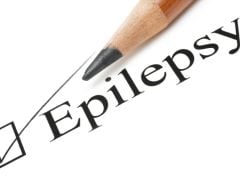Epilepsy: Seizure signs and symptoms are like a temporary confusion, a staring spell, uncontrollable jerking movements of the arms and legs and more. Read here to know all about epilepsy.

International Epilepsy Day 2023: Epilepsy is a neurological disorder that affects brain functions
HIGHLIGHTS
- According to WHO about 50 million people have epilepsy across the world
- Epilepsy leads to recurring seizures
- Any head trauma may be an accident can lead to epilepsy
Epilepsy, a chronic neurological disorder caused by excessive or abnormal brain electrical activity can present with seizures or periods of unusual behaviour, sensations and loss of awareness has an overall prevalence of 5.59 to 10 per 1,000 people in India. What typically makes the condition difficult to treat is the seizure symptom which may widely vary and may or may not last for long. Most recover with medications and few difficult to treat may require lifelong medication and surgery. Most seizures are precipitated by known triggers. Interestingly, there are several underlying health conditions which may trigger epilepsy and provoke seizures. Here are some of them that you should know about.
Epilepsy risk factor you need to know
1. Head trauma
In case you have suffered from some kind of head trauma due to accidents or any other head injury, it can cause epilepsy.
2. Certain brain conditions
There are several brain conditions that may cause severe damage to the brain like brain tumours and strokes can cause epilepsy. In fact, stroke is considered to be one of the leading causes of epilepsy among those who are 35 and above.
3. Infectious diseases
Epilepsy may be induced by certain infectious diseases like meningitis, tuberculosis, AIDS and viral encephalitis. In case you suffer or have suffered from any of these infections, you must be cautious of epileptic signs.
4. Prenatal injury
Risk of epilepsy may occur even before birth, in case a baby suffers from any kind of prenatal injury. When in the womb, babies are extremely sensitive to brain damage which may happen due to several reasons, be it an infection in the mother or poor nutrition or oxygen deficiency. A brain damage before birth may become a trigger for epilepsy and cerebral palsy among children post birth.
5. Development disorders
Epilepsy may often occur among those suffering from developmental disorders like autism and neurofibromatosis.
6. Vascular diseases
A condition related to blood vessels can lead to severe brain damage and trigger epilepsy. Controlling vascular ailments may help in managing epilepsy well.
7. Dementia
Dementia can also increase the risk of epilepsy among older adults.

Dementia may increase the risk of epilepsy in elderly
Photo Credit: iStock
8. Psychological issues
Those with epilepsy are more likely to suffer from psychological problems like depression, anxiety, suicidal thoughts and behavioural disorders.
Also read: What Are The Causes Of Epilepsy? Know Symptoms, Risk Factors And More
When do you reach out for clinical help?
You must seek immediate medical help if
- The seizure lasts more than five minutes
- Breathing or consciousness doesn't return after the seizure stops
- A second seizure follows immediately
- You have a high fever
- You're experiencing heat exhaustion
- You're pregnant
- You have diabetes
- You have injured yourself during the seizure
Seizure signs and symptoms are like a temporary confusion, a staring spell, uncontrollable jerking movements of the arms and legs, loss of consciousness or awareness, psychic symptoms like fear, anxiety and more.
Also read: You Can Prevent Dementia: Tips To Improve Brain Function And Health
Diagnosing and treating epilepsy
You may be asked to go for a neurological exam and blood tests initially. In order to detect a kind of brain anomalies, you may be asked to undergo Electroencephalogram (EEG), high-density EEG, computerised tomography (CT scan), Magnetic resonance imaging (MRI), Functional MRI (fMRI), Positron emission tomography (PET) and more.
The treatment generally begins with medication and in case the condition cannot be controlled by drugs, doctors opt for surgery. Anti-epileptic medication may also have certain side effects like fatigue, dizziness, weight gain, loss of bone density, skin rashes, loss of coordination, speech problems, memory and thinking problems. Depression, suicidal thoughts and behaviour, severe rash and inflammation of certain organs like liver are some of the rare and more severe side-effects.
Also read: Everything You Need To Know About Epilepsy
Best seizure control steps
- Take medications as prescribed. Never stop taking them or consult your doctor before switching to something else.
- Notify your doctor immediately if you notice new or increased feelings of depression, suicidal thoughts, or unusual changes in your mood or behaviors.
- Inform your doctor if you have migraine along with epilepsy.
- Get enough sleep and exercise daily.
- Know your seizure triggers and avoid them.
(Dr. Shiva Kumar R. is a Senior Consultant - Neurology & Epileptology at Sakra World Hospital)
Disclaimer: The opinions expressed within this article are the personal opinions of the author. NDTV is not responsible for the accuracy, completeness, suitability, or validity of any information on this article. All information is provided on an as-is basis. The information, facts or opinions appearing in the article do not reflect the views of NDTV and NDTV does not assume any responsibility or liability for the same.
DoctorNDTV is the one stop site for all your health needs providing the most credible health information, health news and tips with expert advice on healthy living, diet plans, informative videos etc. You can get the most relevant and accurate info you need about health problems like diabetes, cancer, pregnancy, HIV and AIDS, weight loss and many other lifestyle diseases. We have a panel of over 350 experts who help us develop content by giving their valuable inputs and bringing to us the latest in the world of healthcare.














